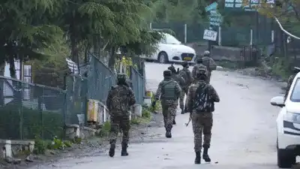From City Slicker to Small-Town Hero: A Deeper Dive into Panchayat’s Exploration of Rural India

Panchayat, the heartwarming comedy produced by The Viral Fever (TVF), transcends mere entertainment. It offers a nuanced and relatable exploration of the stark contrast between urban aspirations and the realities of rural India. We embark on this journey alongside Abhishek, a young engineering graduate whose initial reluctance to work as a Panchayat secretary in the quaint, yet underdeveloped village of Phulera becomes a catalyst for personal growth and unexpected connection.
A Culture Clash with Comic Relief: Disillusionment and Discovery
Abhishek’s initial perception of Phulera is one of a frustrating pitstop on his ambitious path to a coveted city career. Accustomed to the fast-paced, technology-driven world, he struggles to adapt to the village’s slower pace and lack of basic amenities. The series cleverly uses Abhishek’s initial frustration with the absence of internet and resistance to change as a running gag. This humorous device highlights the stark difference between his urban dreams and the grounded realities of rural life.
Beyond the Fish-Out-of-Water Narrative: Unveiling the Heart of Phulera
As Abhishek navigates the complexities of his new role, Panchayat sheds its “city slicker in the sticks” exterior. We delve deeper into the vibrant tapestry of Phulera’s residents. There’s Manju Devi, the strong-willed Pradhan (village head), whose illiteracy is counterbalanced by her sharp wit and profound understanding of village dynamics. Her husband, Pradhan Pati, offers a calming and supportive presence. Vikas, the initially cynical assistant, proves himself to be a reliable comrade. And then there’s Vinod, the tech-savvy youngster who becomes Abhishek’s unlikely confidant, bridging the gap between tradition and technological advancement. Through his interactions with these characters, Abhishek gains valuable insights into the intricate web of village politics, the deeply embedded traditions, and the unique challenges faced by the community. He witnesses firsthand the crucial role of the Panchayat system in addressing issues ranging from lack of clean water and sanitation to underlying social problems like casteism and gender inequality.
Finding His Place: From Frustration to Fulfillment
Gradually, Abhishek sheds his initial prejudice and begins to appreciate the simple joys and strong sense of community that Phulera offers. He witnesses the villagers’ resilience in the face of adversity, their infectious humor, and their unwavering commitment to each other. This shift is not merely a plot point; it’s a testament to the power of human connection and the transformative potential of rural life. Abhishek starts to take his role seriously, leveraging his education and resourcefulness to tackle problems creatively. From facilitating the construction of toilets to resolving land disputes, he implements impactful changes that earn him the respect and trust of the villagers. By the season’s end, Abhishek finds a profound sense of purpose in his work. He discovers that making a positive difference in the lives of a small community can be far more rewarding than the promise of a high-paying corporate job.
Panchayat’s Lasting Impact: A Celebration of Rural India with a Critical Eye
Panchayat’s charm lies in its ability to seamlessly weave humor with thoughtful social commentary. The series employs witty dialogue, relatable characters, and cleverly constructed situations to address critical issues like casteism, gender inequality, and the digital divide in rural India. It doesn’t shy away from portraying the challenges faced by these communities, but it also celebrates the beauty of tradition, the resourcefulness of the villagers, and the enduring power of community spirit. Panchayat is more than just a light-hearted comedy; it serves as a window into the heart of rural India, leaving viewers with a sense of warmth, empathy, and a newfound appreciation for the complexities and richness of village life.










